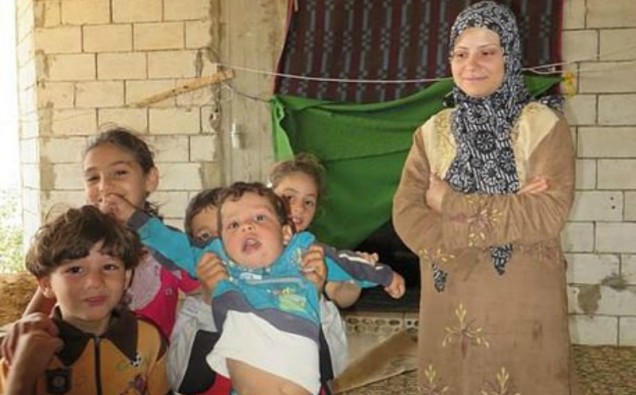
Armed conflicts around the world are taking a heavy toll on children leaving them unimmunized against infectious diseases as health facilities.
Almost two-thirds of children without even basic vaccines live in countries that are either partially or entirely affected by conflict, according to a report by UNICEF released to mark the World Immunization Week that will go through April 30. Immunization is not available as workers cannot make it to the off limits war zones.
Of the countries embroiled in conflicts, South Sudan tops the list with 61 percent children not receiving the most childhood vaccines, followed by Somalia (58%) and Syria (57%).
“Conflict creates an ideal environment for disease outbreaks,” said UNICEF Chief of Immunization Robin Nandy. ”Children miss out on basic immunizations because of the breakdown – and sometimes deliberate destruction – of vital health services. Even when medical services are available, insecurity in the area often prevents them from reaching children.”
Almost one million babies die on their day of birth, and close to 2 million in the first week of life. The latest WHO estimates show that of 5.9 million deaths in children under five that happened in 2015, about half were caused by infectious diseases and conditions such as pneumonia, diarrhea, malaria, meningitis, tetanus, HIV and measles.
Life-saving interventions to every pregnant woman and every newborn are critical to reducing the child mortality rate, according to studies.
The targeted killings of health workers and the destruction of medical facilities in areas of conflict are also having a disastrous effect on children’s health. Polio workers have been frequently targeted in Pakistan, which remains the only country along with Afghanistan exposed to crippling poliovirus.
In a latest incident, seven policemen were killed in Pakistan’s biggest of Karachi this month when they were escorting health workers to administer polio drops to children.
Most deaths among children five-year of age or below are caused by preventable or treatable diseases. As much as 18 percent of such children died with preterm birth complications in 2015, followed by pneumonia (16%), intrapartum-related complications (12%), diarrhoea (9%) and sepsis/ meningitis (9%).
Almost half of all under-five deaths are attributable to undernutrition while more than 80 percent of neonatal deaths occur among newborn infants of low birth weight. Currently, 79 countries have an under-five mortality rate above 25.
In areas suffering from conflicts, immunization efforts in Syria have plummeted from 80 percent in 2010 – prior to the conflict – to 43 per cent in 2014. Polio resurfaced in the country in 2013, after 14 years with no cases, the UNICEF report said. Over 2,000 suspected cases of measles have already been reported in Congo, with 17 deaths, most of them among children under 5 years old.
Conditions in conflict areas and in camps that shelter displaced persons are multiplying fatalities among children suffering from measles, diarrhea, respiratory infections and malnutrition. Fewer than one percent of children that contract measles die in non-conflict settings, whereas in refugee camps where crowding and malnutrition are rife, child deaths from measles can soar to as much as 30 percent of all cases, the report said.
Highlighting the importance of immunization exercise, the report says that such campaigns also helped revive other badly needed health services. For instances, in conflict-hit areas of Iraq, Syria and Yemen, health workers engaged in immunization also offer health and nutrition services as well as care for childhood illnesses.
“Children affected by conflict are pushed into a downward spiral of deprivation that robs them of their health and, by extension, their futures. Vaccination can help to break this vicious cycle,” said Nandy. “Immunization is a vital service that deserves and requires protection from all parties to a conflict.”














